

 1
1그린세미나 IN CAMPUS
with Ewha Womans University
ECUBE, SengSengSuDa
and Daejayon
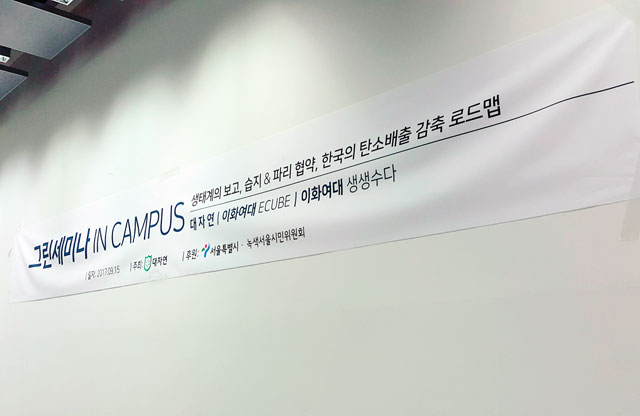
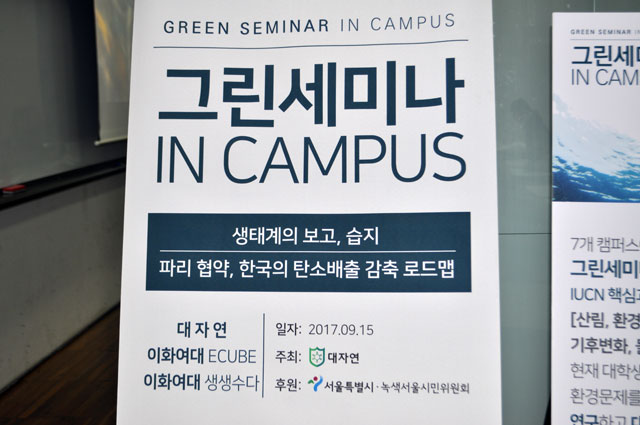
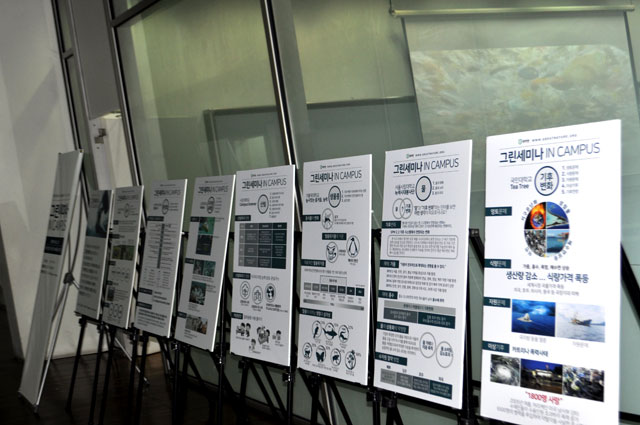
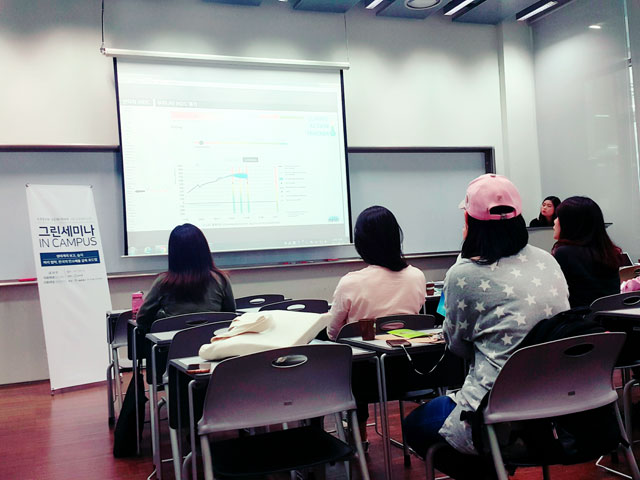
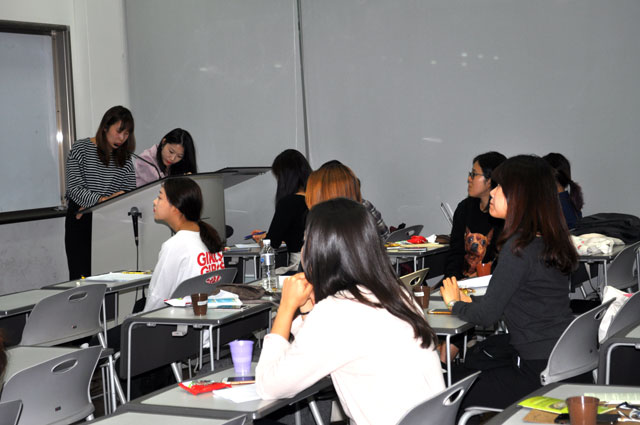
First, ECUBE presented about "Wetlands, an ecological repository"
It started by showing a video of the beauty of Suncheonbay, coastal wetland registered on Ramsar in 2006.
ㅣValue of Wetlands
- Ecological Value
provide wild animals natural habitat, flow control and remove organic matters
- Hydrologic Value
excellent role as a dam in the wet seasons and in droughts
prevent soil erosion
- Economic Value
contribute to secure water resources : reduces costs for the development of water resources
water purification : reduces costs for the disposal of environmental pollution
enormous source of income due to the cradle of fishing industry
give opportunity to agriculture, lumber, production, energy resources, ecotourism
- Landscape and Cultural Value
unique scenery, place with vitality
heritage that the local community and the country gets
ㅣFunctions of Wetlands
- function of supplying nutrient and food
- climate regulation : save up to 40% of the world's carbon, block carbon flowing into the atmosphere
- water purification : capability to remove toxic material
- preserve biodiversity : more that 40% of the worlds species live, in some wetlands important species that are endangered live (Libellula angelina,otter)
- flood control
- prevent storm
- productive
- leisure and tourism
ㅣDamage of Wetlands
- campsite
- factory construction
- inflow of invasive species
- garbage dumping
- developing dighways
- opening of reservoir
ㅣSolutions
- governments CEPA action plan : pilot project for the wise use of wetlands, education for empowerment, establish efficient policy for national wetlands, reinforce public-private partnership for progress
- Ramsar Convention : prevent gradual erosion and loss of the wetland present and future
Remember Febuary 2nd , World wetland day!
Watch the FULL Seminar of Ewha Womans University, ECUBE
http://kgcaus.greatnature.org/pglist/gallery.asp?sgubun=enviro_class
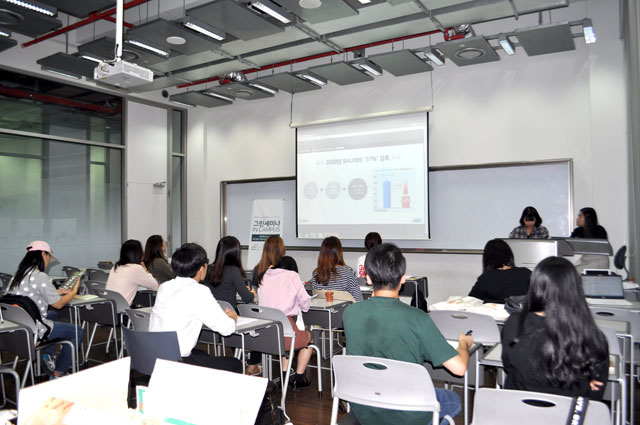
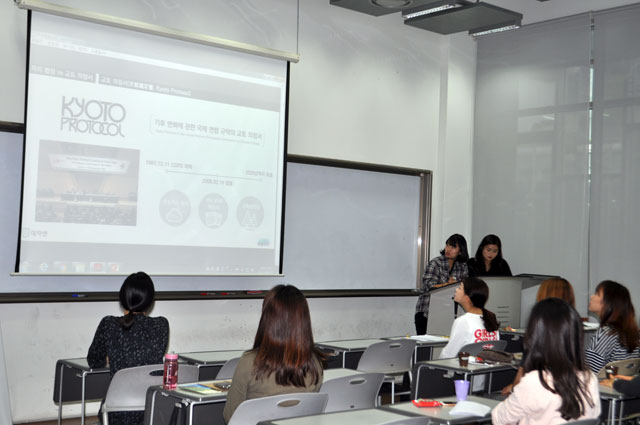
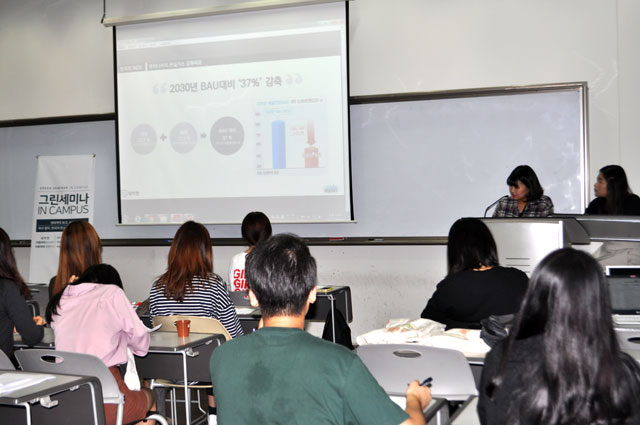
Next, presentation was SengSengSuDa's "Paris Convention, Road Map of Korea's Carbon Emission Reduction"
Countries in UNFCCC opened a Conference of Parties(COP)
ㅣKyoto Protocol
1997.12.11 COP3 adopted---2005.02.16 announced---valid until the year 2020
Imposed an obligation of reducing greenhouse gas emission
United States resigned
After, 1st commitment period, Canada resigned
2nd commitment period, Japan, Russia, New Zealand resigned
Didn't impose obligation of reducing greenhouse gas emission to China, India
lack of effectiveness, close to failure
ㅣParis Agreement
2015.12.15 COP21 adopted----2016.11.4 enacted as an international law----no end date
Step-by-step reducing greenhouse gas emission, so the Earth's average temperature doesn't rise more than 2degrees, compared to the ages before industrialization.
-After INDC 2020, voluntary participation plan of countries.
Submit until 2015, materializate written guidelines and
according to INDC, agreement with Paris Agreement
-INDC writting guidelines (Lima Decision)
Submit information : include time, target range, methodology of making process
principle of contribution : reinforce present reduce activity
reducing plan: explain how it is greatly motivated and fair in national circumstances
submission procedure : countries that are ready should submit until 2015.3, other countries until 2015.9
Major countries greenhouse gas emission reduction plan for 2030.
EU : compared to 1990, 40% reduction
Norway : compared to 1990, 40% reduction
Korea : compare dto BAU, 37% reduction
(BAU-estimated emission when there was no greenhouse gas emission reduction plan)
ㅣKorea's goal in reducing greenhouse gas emissions
reduce 37% compared to BAU until 2030 (Domestic 25.7%, Overseas 11.3%)
[Domestic, reduction plan 25.7%]
necessary to reduce 219 million greenhouse gas
- convertable(development, erection) 64.5 million tons, industry 56.4 million tons, buildings 35.8 million tons, new energy business 28.2 million tons, transportation 25.9 million tons, other public 3.6 million tons,
waste 3.6 million tons, enrichment 1 million tons
- reduction goal in energy part 87%, non-energy part 13%, need energy policy like new regeneration energy
[Overseas, 11.3%]
- agreement about reduction with the international society
- expand the global emission trading market
- prepare financing plans
[Problems]
Asan Institute for Policy Studies, Korea's evaluation (2015.8)
- Violation of fundamental rule
New goal must be in a higher standard then the goal before.
reducing 25.7% in domestic, buying 11.% from overseas is an incomplete plan
The CAT evaluated that Korea's plan is unappropriate.
Watch the FULL Seminar of Ewha Womans University, SengSengSuDa
http://kgcaus.greatnature.org/pglist/gallery.asp?sgubun=enviro_class
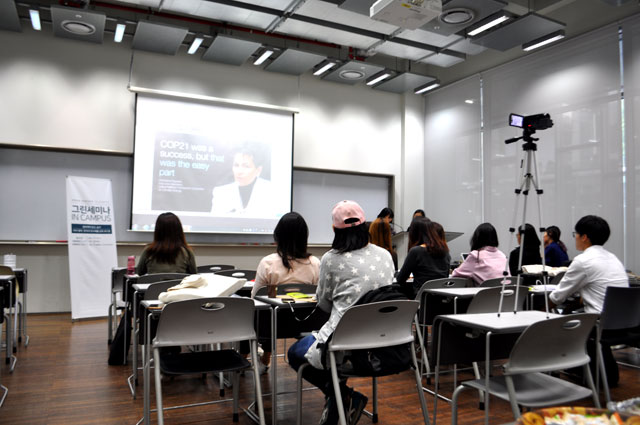
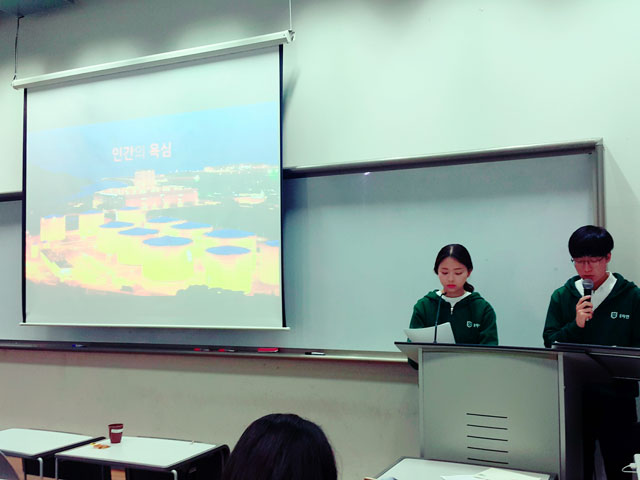
'Daejayon Report' from Daejayon
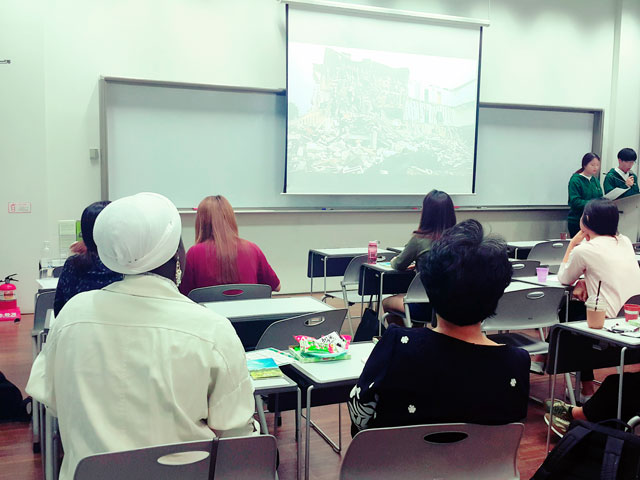
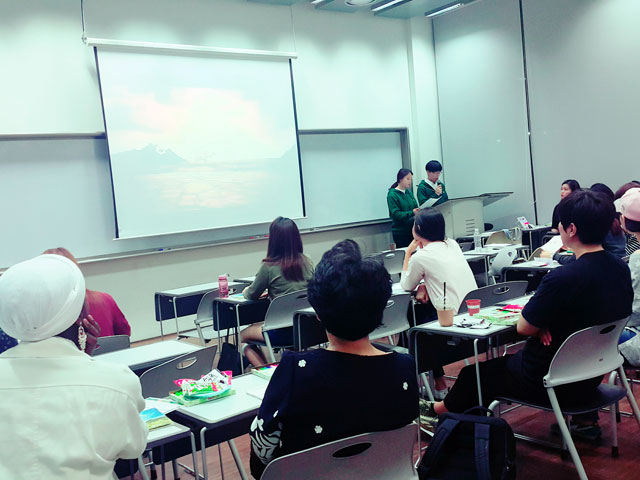
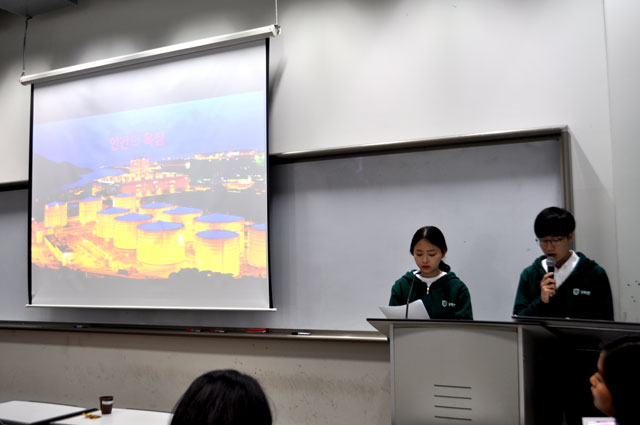
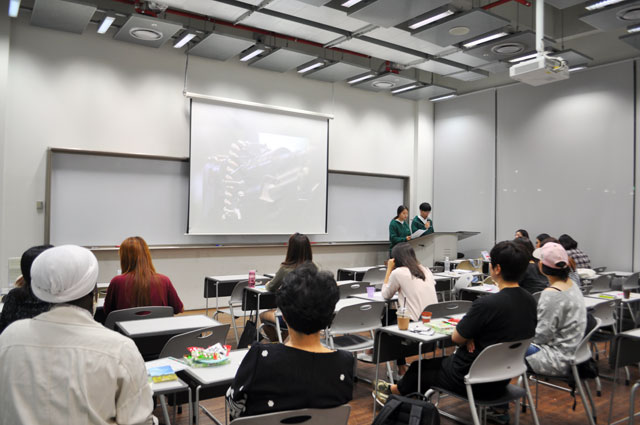
After 'Daejayon Report' we discussed about the following subjects,
1. Should there be a penalty to the countries that didn't fully perform the Paris Agreement? If so what could be a good penalty?
2. What kind of efforts does the government, companies and people need to make balance in settling down Korea's new regeneration energy?
Think about it!
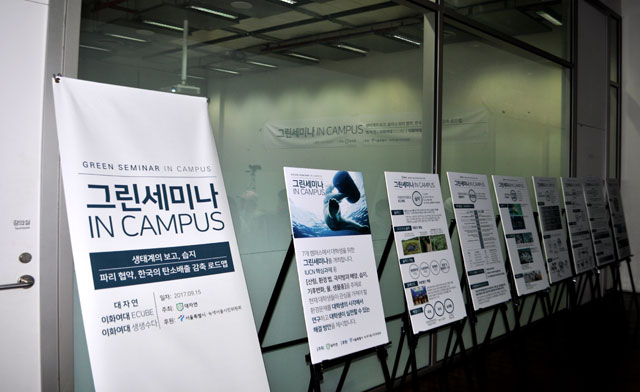
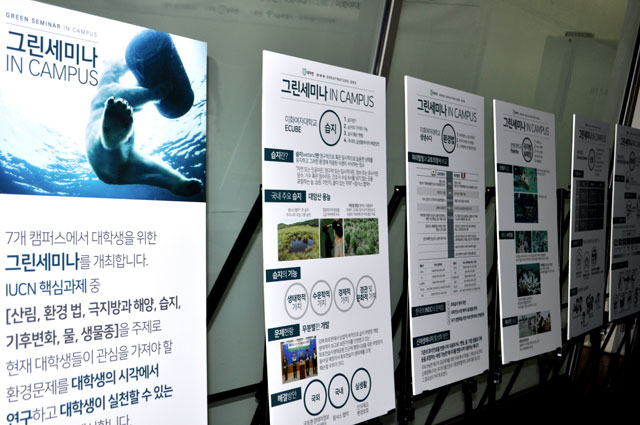

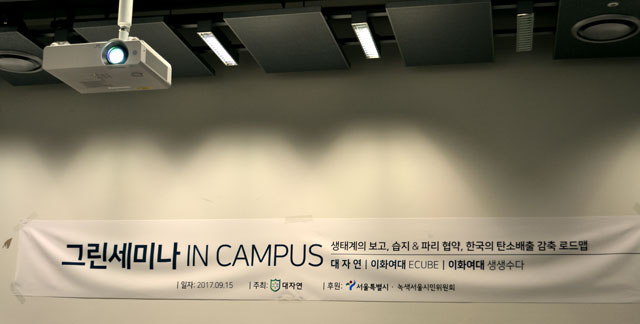
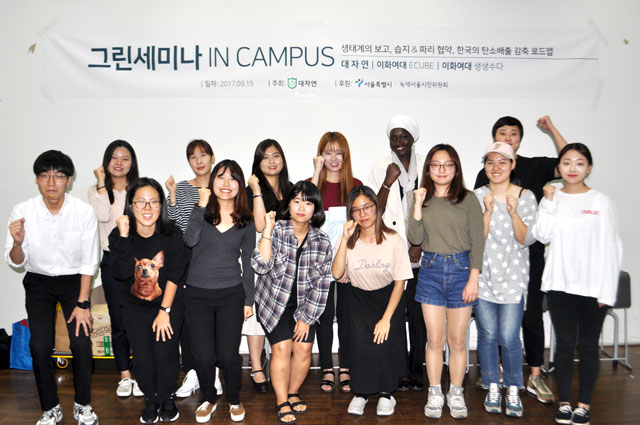
Even in their busy semesters, environmental club students took effort to search for datas for the seminar!
Hope that they grow as global environmental leaders and overcome global warming!
See you at the next seminar!
Green Seminar IN CAMPUS with Sangmyung..  1 1 |
Sangmyung . . | 2017.09.18 | |
Green Seminar IN CAMPUS with Ewha Woma..  1 1 |
Ewha Woman. . | 2017.09.15 | |
Green Seminar IN CAMPUS with Catholic ..  1 1 |
Catholic U. . | 2017.09.14 |